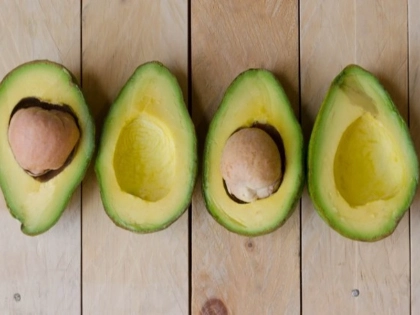Is Oatmeal Good For High Cholesterol?
Soluble fiber, which is abundant in oatmeal and lowers cholesterol levels, Beta-glucan, a form of soluble fiber that binds with bile acids and expels them from the body, is credited with this effect. Oatmeal is a simple way to get the 25 to 38 grams of dietary fiber per day that experts advise. About 3 grams of soluble fiber, which is the recommended daily allowance, can be found in a cup of oatmeal.
Solvent Fiber
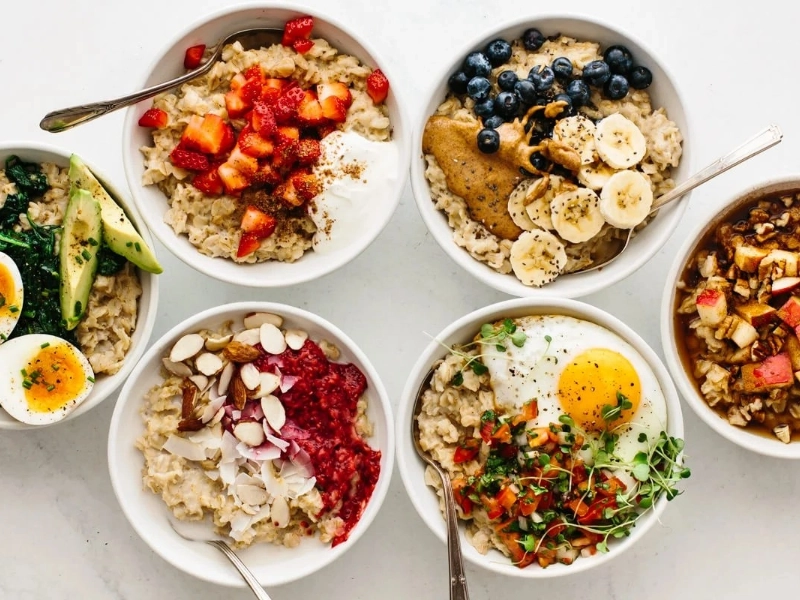
Iron
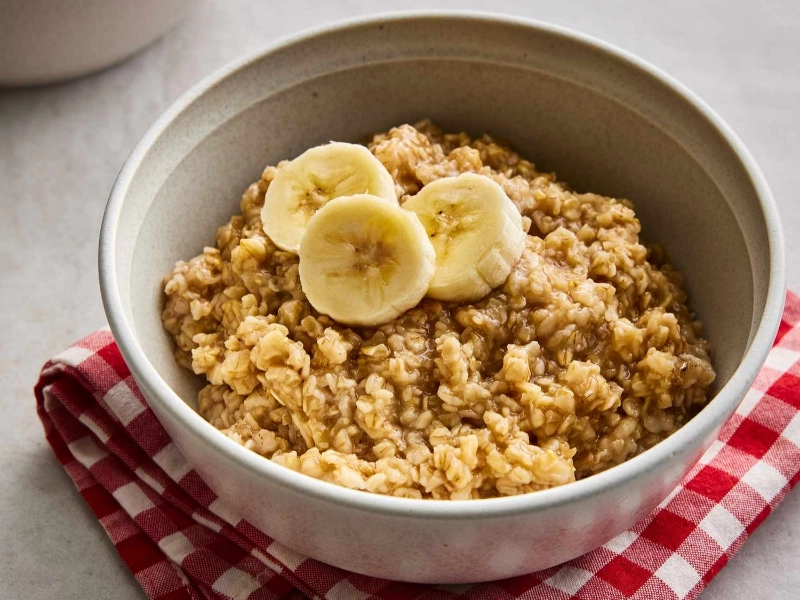 In addition, oats are a rich source of vitamins and minerals that guard against cancer, diabetes, heart disease, and other diseases. Oatmeal's soluble fiber, or beta-glucan, lowers blood cholesterol levels and lessens the gut's absorption of postprandial glucose or sugar.
It's a good idea to eat a bowl of plain, unflavored instant or quick-cooking oats. But watch out for flavored foods, as they frequently come with extra sugar and flavors that can increase the calorie count.
Oats help lower total and LDL (bad) cholesterol, according to studies. Due to various study methods, the type of oat consumed, and other factors, the precise effect differs across studies. However, it seems that oats have similar cholesterol-lowering advantages as statin drugs. A cup of cooked oats contains essential nutrients like magnesium, potassium, zinc, and vitamin B1, in addition to reducing cholesterol. (For more details, see "Oatmeal Benefits".)
In addition, oats are a rich source of vitamins and minerals that guard against cancer, diabetes, heart disease, and other diseases. Oatmeal's soluble fiber, or beta-glucan, lowers blood cholesterol levels and lessens the gut's absorption of postprandial glucose or sugar.
It's a good idea to eat a bowl of plain, unflavored instant or quick-cooking oats. But watch out for flavored foods, as they frequently come with extra sugar and flavors that can increase the calorie count.
Oats help lower total and LDL (bad) cholesterol, according to studies. Due to various study methods, the type of oat consumed, and other factors, the precise effect differs across studies. However, it seems that oats have similar cholesterol-lowering advantages as statin drugs. A cup of cooked oats contains essential nutrients like magnesium, potassium, zinc, and vitamin B1, in addition to reducing cholesterol. (For more details, see "Oatmeal Benefits".)
Magnesium
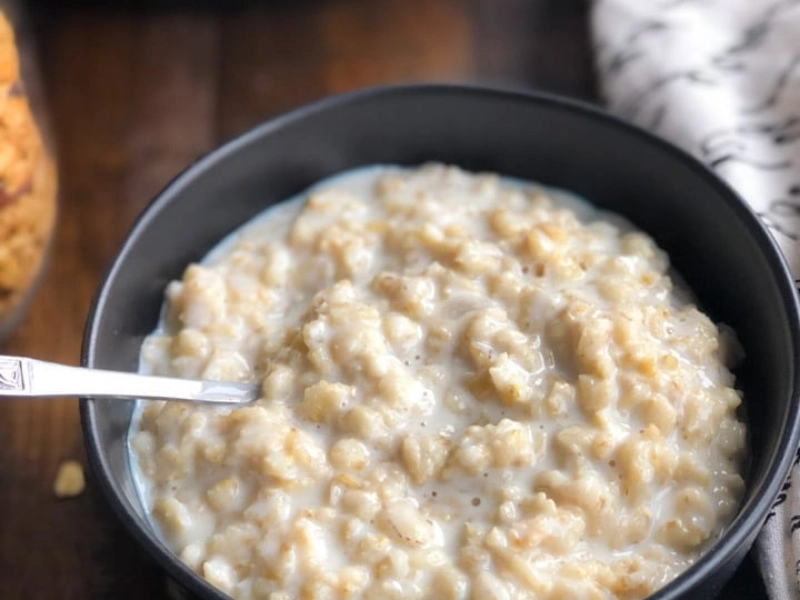 Magnesium is essential for the liver's ability to eliminate cholesterol from your body. By limiting the amount of glucose (sugar) that enters your gut after a meal, it also helps to control your blood sugar levels.
You can lower your cholesterol by consuming foods high in magnesium, such as whole grains, leafy green vegetables, low-fat dairy products, and several ready-to-eat morning cereals. Items that are rich in added sugars and saturated fats should be avoided, and you should make sure to acquire your recommended daily intake of potassium.
Another excellent source of magnesium is avocados, which contain 14% of your daily required consumption in just one medium avocado. Additionally, they include heart-healthy monounsaturated fats and a considerable amount of potassium.
Magnesium is essential for the liver's ability to eliminate cholesterol from your body. By limiting the amount of glucose (sugar) that enters your gut after a meal, it also helps to control your blood sugar levels.
You can lower your cholesterol by consuming foods high in magnesium, such as whole grains, leafy green vegetables, low-fat dairy products, and several ready-to-eat morning cereals. Items that are rich in added sugars and saturated fats should be avoided, and you should make sure to acquire your recommended daily intake of potassium.
Another excellent source of magnesium is avocados, which contain 14% of your daily required consumption in just one medium avocado. Additionally, they include heart-healthy monounsaturated fats and a considerable amount of potassium.
Zinc
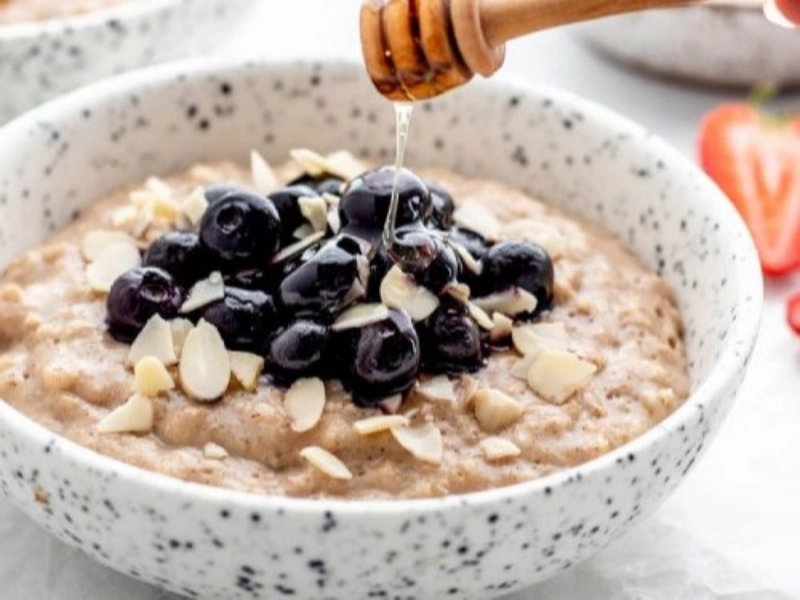 A good amount of zinc, which is important for cellular development and repair, is found in oats. Additionally, zinc supports proper cholesterol levels and blood sugar control.
Oatmeal's soluble fiber, beta-glucan, lowers cholesterol by preventing its absorption in the intestines. Additionally, it encourages regular bowel movements and maintains good gut flora.
Take a bowl of plain, unsweetened oats to start your day. For a sweet breakfast, you can dress up your oats with fresh, frozen, or dried fruit. For a boost in plant protein, add nuts, seeds, or nut butter. Use rolled oats in place of bread crumbs in meatloaf or vegetarian burger patties for a savory dish. Granola bars and cookies both benefit from using oatmeal as a base.
A good amount of zinc, which is important for cellular development and repair, is found in oats. Additionally, zinc supports proper cholesterol levels and blood sugar control.
Oatmeal's soluble fiber, beta-glucan, lowers cholesterol by preventing its absorption in the intestines. Additionally, it encourages regular bowel movements and maintains good gut flora.
Take a bowl of plain, unsweetened oats to start your day. For a sweet breakfast, you can dress up your oats with fresh, frozen, or dried fruit. For a boost in plant protein, add nuts, seeds, or nut butter. Use rolled oats in place of bread crumbs in meatloaf or vegetarian burger patties for a savory dish. Granola bars and cookies both benefit from using oatmeal as a base.
Vitamins
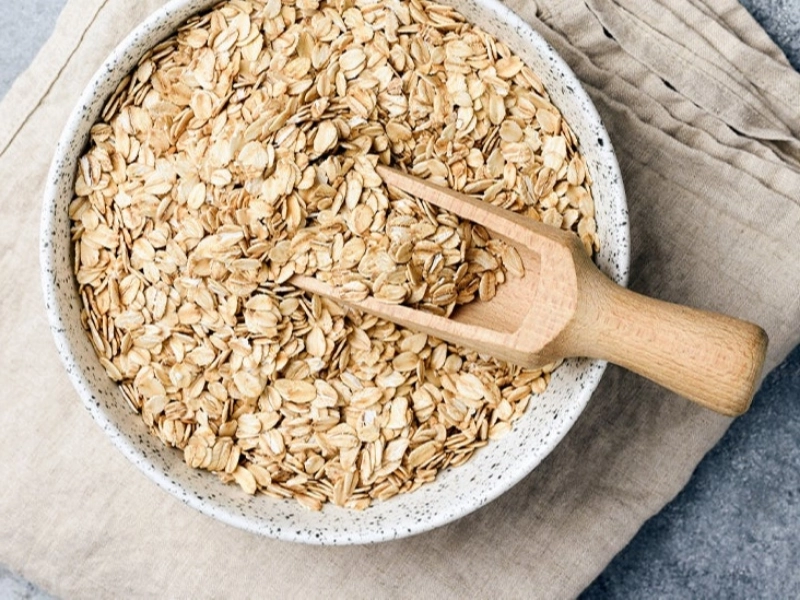 Oatmeal contains beta-glucan, a soluble fiber that lowers cholesterol and inhibits the absorption of LDL cholesterol in the colon. Additionally, it helps the formation of healthy bacteria in the gastrointestinal system and stomach, which enhances bowel health. Oatmeal that has been cooked contains manganese, vitamin B1 (thiamin), and 1.8 grams of beta-glucan per cup. It has been demonstrated that a diet high in soluble fiber is useful in lowering triglycerides, LDL cholesterol, and total cholesterol while maintaining HDL cholesterol.
To increase the amount of soluble fiber and vitamin C in your oatmeal, try adding berries. Berries are abundant in vitamins A and K and low in sugar, both of which help control blood pressure. By including a dollop of nut butter or a swirl of yogurt, you can increase your protein consumption.
Oatmeal contains beta-glucan, a soluble fiber that lowers cholesterol and inhibits the absorption of LDL cholesterol in the colon. Additionally, it helps the formation of healthy bacteria in the gastrointestinal system and stomach, which enhances bowel health. Oatmeal that has been cooked contains manganese, vitamin B1 (thiamin), and 1.8 grams of beta-glucan per cup. It has been demonstrated that a diet high in soluble fiber is useful in lowering triglycerides, LDL cholesterol, and total cholesterol while maintaining HDL cholesterol.
To increase the amount of soluble fiber and vitamin C in your oatmeal, try adding berries. Berries are abundant in vitamins A and K and low in sugar, both of which help control blood pressure. By including a dollop of nut butter or a swirl of yogurt, you can increase your protein consumption.
